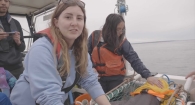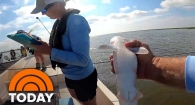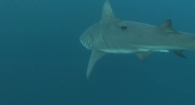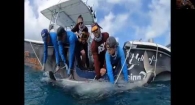The Big Fish Lab
Shark and Fish Ecophysiology
Dr. James Sulikowski's Shark and Fish Ecophysiology Lab is a part of The Big Fish Lab, housed within Coastal Oregon Marine Experiment Station at Oregon State University
The lab’s research is dedicated to the study of charismatic fish such as sharks, skates and rays. By studying movement patterns, growth rates, reproductive biology, resiliency to climate change and fishing pressure, Sulikowski and his team of student researchers discover ways to more effectively manage, conserve and utilize fish populations.
Our group is diverse and promotes equity and inclusion. Undergraduate and graduate students are critical to the lab’s research. The involvement of dedicated, responsible, and motivated students is not only essential to advance understanding of the ecology of fishes, but it also provides a stepping-stone for the training of future marine scientists.
You're gonna need a bigger car...
Get your own SHARK LICENSE PLATE

About James Sulikowski
In addition to being the Director of the Coastal Oregon Marine Experiment Station, Dr. James Sulikowski is a marine biologist and professor at Oregon State University. He has 25 years of experience working with cartilaginous and bony fish. He has more than 100 peer-reviewed publications and his research has garnered more than $13 million in external grant funding.
James has appeared on numerous local and national television shows including the Today Show, Ocean Mysteries, the BBC, Discovery Channel, and National Geographic. Dr. Sulikowski has a bachelor’s degree in biology from Denison University, masters’ degrees in marine biology (Nova Southeastern University) and physiology (Depaul University), as well as a Ph.D. in Zoology (UNH).
In The News

New specialty license plate will support shark research at Oregon State University
Vouchers are now on sale for a new specialty Oregon license plate that researchers hope will inspire people to think differently about the...
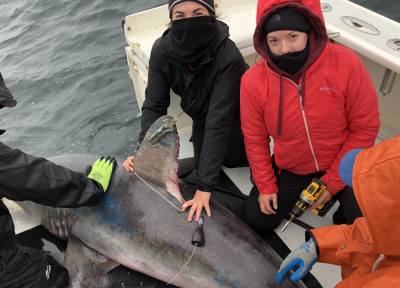
Oregon researchers find first-ever evidence of attack on ‘phantom’ shark
A team of scientists from Arizona, Oregon and Rhode Island had been tracking a pregnant, porbeagle shark for hundreds of miles from New England...

Oregon researchers find first-ever evidence of attack on ‘phantom’ shark
“Little did we know that a big shark, like a porbeagle – a fast-moving shark – was food for something bigger,” Dr. James Sulikowski, the...
Did you know...
Salmon sharks face threats due to bycatch in trawl, gill-net, and seine fisheries and from recreational fisheries.
(Goldman and Musick, 2008)
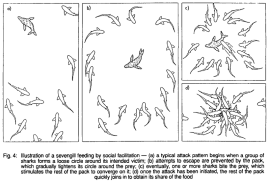
Sevengill sharks hunt in packs to take down larger prey.
(Ebert 1991)
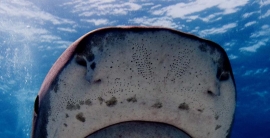
Sharks can detect electrical fields through the use of the Ampullae of Lorenzini, sense organs that form tube like structures under the skin.
(Murray, 1974)



